
A log from Ziauddin Yousafzai’s week in Nigeria, where he met with leaders, partners, and girls working to make 12 years of education a reality for all girls.
Last week, education activist and co-founder of Malala Fund Ziauddin Yousafzai travelled to Nigeria and met with our partners and advocates — and traditional and faith leaders. His visit focused on learning around a critical theme: how can we mobilise a wider community — including men and boys — to stand with girls and defend their right to learn?
In Nigeria, more than five million girls are out of school — with the highest numbers in the North East and North West. Girls face barriers like child marriage, poverty, gender-based violence and insecurity — all made worse by low levels of investment in education.
Malala Fund’s new five-year strategy (2025–2030) deepens our commitment to Nigeria by supporting local organisations advocating for change. Through grantmaking and advocacy, we’re working with partners to advance policies that uphold girls’ right to education — and to hold leaders accountable for financing education fairly and equitably.
Ziauddin’s trip marked an important step in bringing our strategy to life – listening to those leading change on the ground and building relationships needed to advance girls’ education across Nigeria.
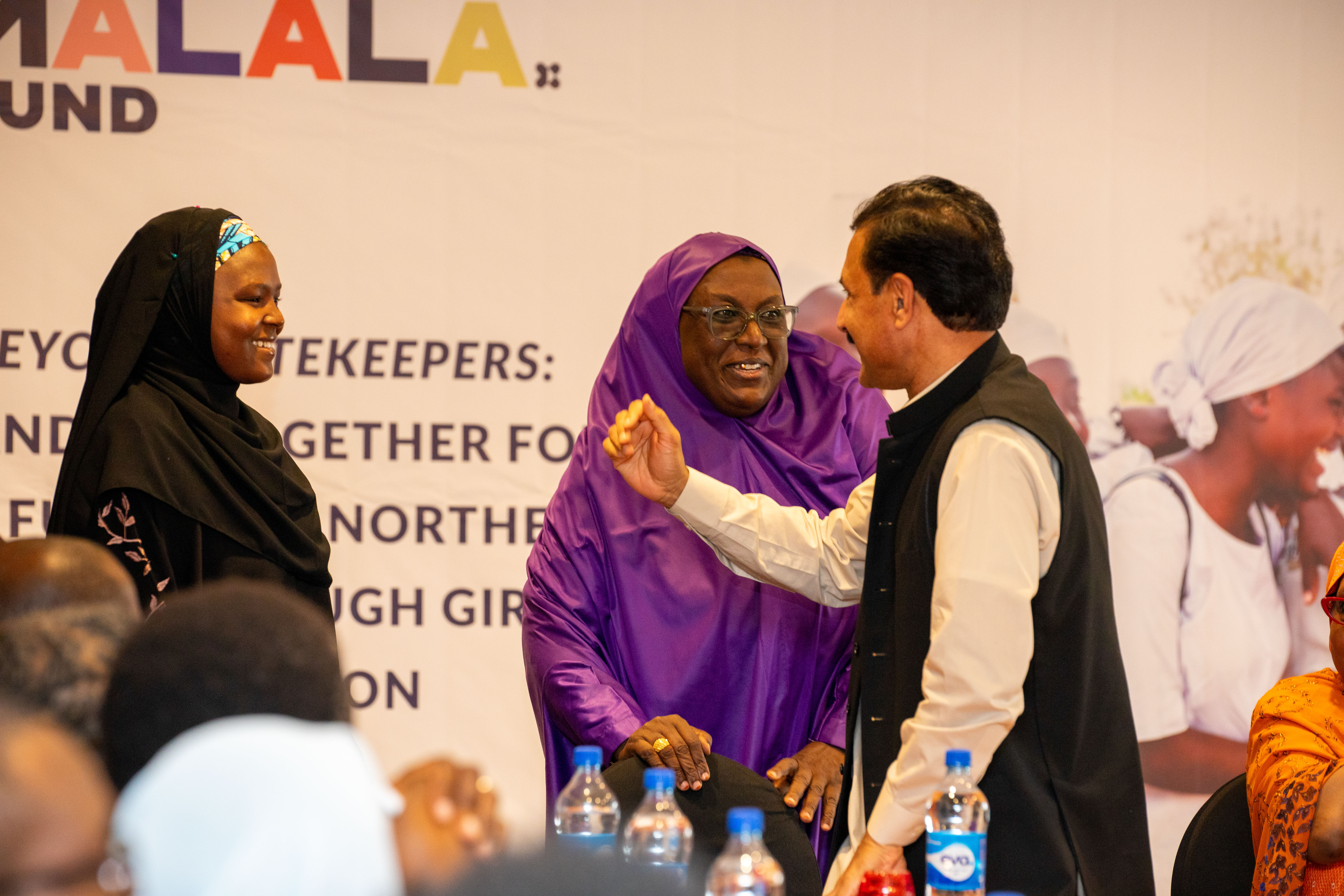
Coming together for girls’ rights
Ziauddin’s visit began in Abuja with a roundtable co-hosted by Nabila Aguele, Malala Fund’s Chief Executive in Nigeria. More than 40 faith leaders, traditional rulers, civil society advocates and education experts came together to reflect on how men and boys can use their power and influence to challenge gender inequality, support girls’ education and help end child marriage.
Among the participants were Reverend John Joseph Hayab (Chairman of the Christian Association of Nigeria (Northern States)) and Hajiya Amina Buba Haruna (Director at the Federal Ministry of Education and National Coordinator of the Adolescent Girls Initiative for Learning and Empowerment (AGILE)). They both shared powerful reflections on how we can work together across sectors to uphold girls’ rights and were joined by Malala Fund grantees and other civil society organisations — including MenEngage Nigeria and Girls Not Brides — who underscored the collective responsibility we share in standing with girls and advancing education for everyone.
The roundtable, facilitated by Rotimi Olawale, Executive Director of YouthHubAfrica, explored how fatherhood, faith, storytelling and leadership can shift social norms and spark policy change. One of the most powerful moments came from Halima Yusuf, a Malala Fund Girl Fellow, who spoke about the role men have played in supporting her education — and called for a collective reimagining of how we raise boys to stand with girls.
“So I say this every chance I get — to my friends, my peers, my colleagues: we have to raise our boys better. We must teach them to respect women — not fear our strength, not suppress our voices, but uplift us. We must teach them that leadership has no gender. That kindness, empathy, and accountability make them more powerful, not less. Because that is how we begin to rewrite this story. That is how we raise not just boys — but allies.
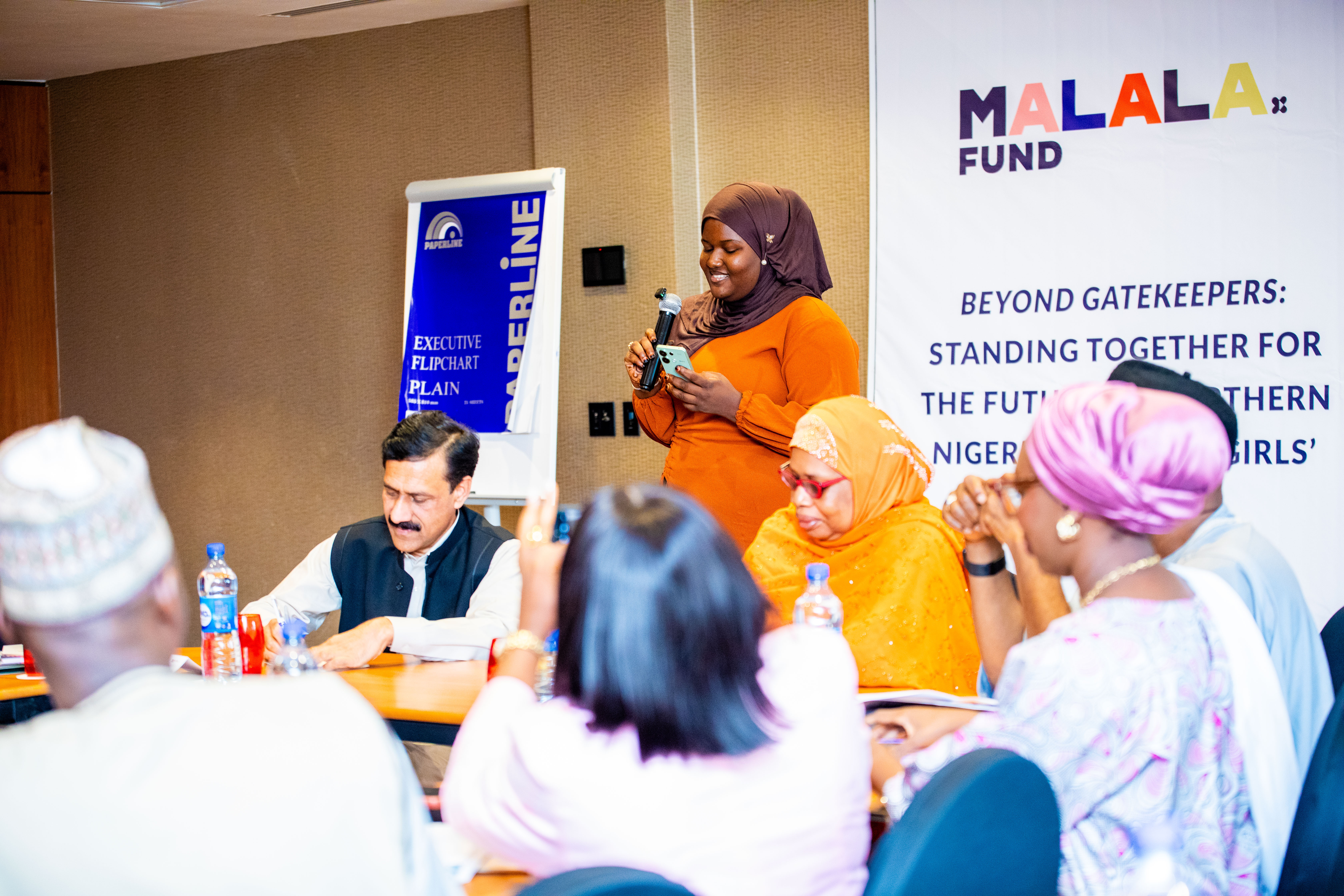
Meeting the Sultan of Sokoto
Later in the week, Ziauddin was joined by faith-based influencer Shuraim Nasirudeen and our Nigeria team on his travel to Sokoto, where he was welcomed by one of the most respected traditional and religious leaders in Nigeria — His Eminence, Alhaji Muhammadu Sa'ad Abubakar III CFR, the Sultan of Sokoto. In a formal meeting with the Sultan and his advisory council, Ziauddin shared about Malala Fund’s mission and work in Nigeria.
His Eminence reaffirmed his commitment to supporting girls’ education and pledged to work closely with Malala Fund and our partners. He spoke about the importance of acting — not just as individuals, but as a collective — to break down the barriers girls face.
“We believe we are doing right for our communities not only in Nigeria but all over the world…we extend our hand in emancipating the girl child and getting her to the highest level of education she can achieve.
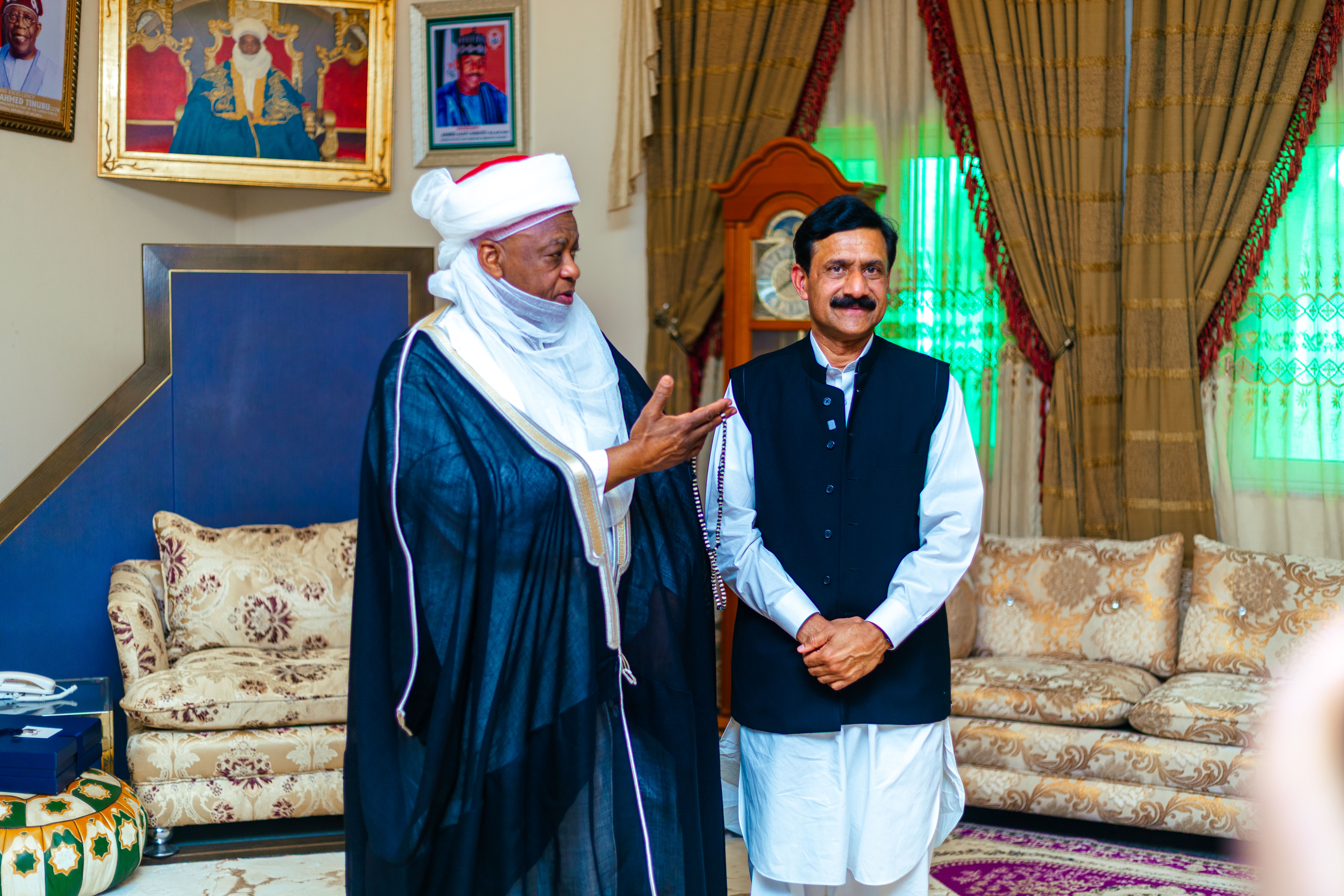
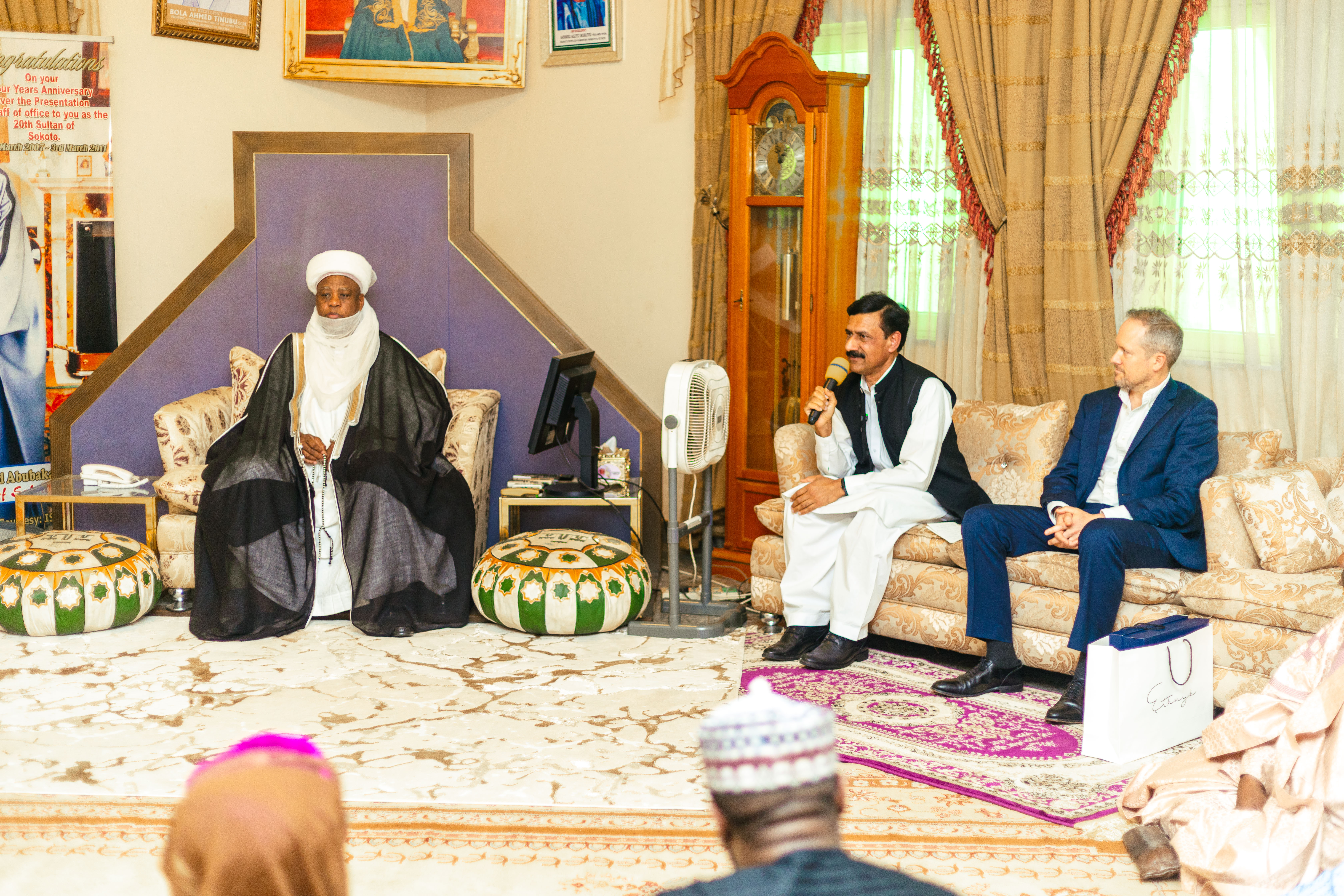
Ziauddin also visited a school run by the Sultan’s foundation, which provides education for children displaced by the conflict in Borno state. Many of the students have lost parents or homes, but are now back in the classroom and looking ahead to a better future. For Ziauddin, who has long advocated for children impacted by conflict, the visit was especially moving.
A powerful moment during the visit was when we met the teachers: the majority were women, leading lessons in maths, science, art and more. In a context where women’s leadership in education is often overlooked, it was a striking reminder of the role female educators play in transforming communities.
Ziauddin addressed the students and joined them in prayer alongside Malala Fund’s Chief Executive in Nigeria, Nabila Aguele— a moving encounter that affirmed our shared belief in education as a pathway to peace, dignity and opportunity.
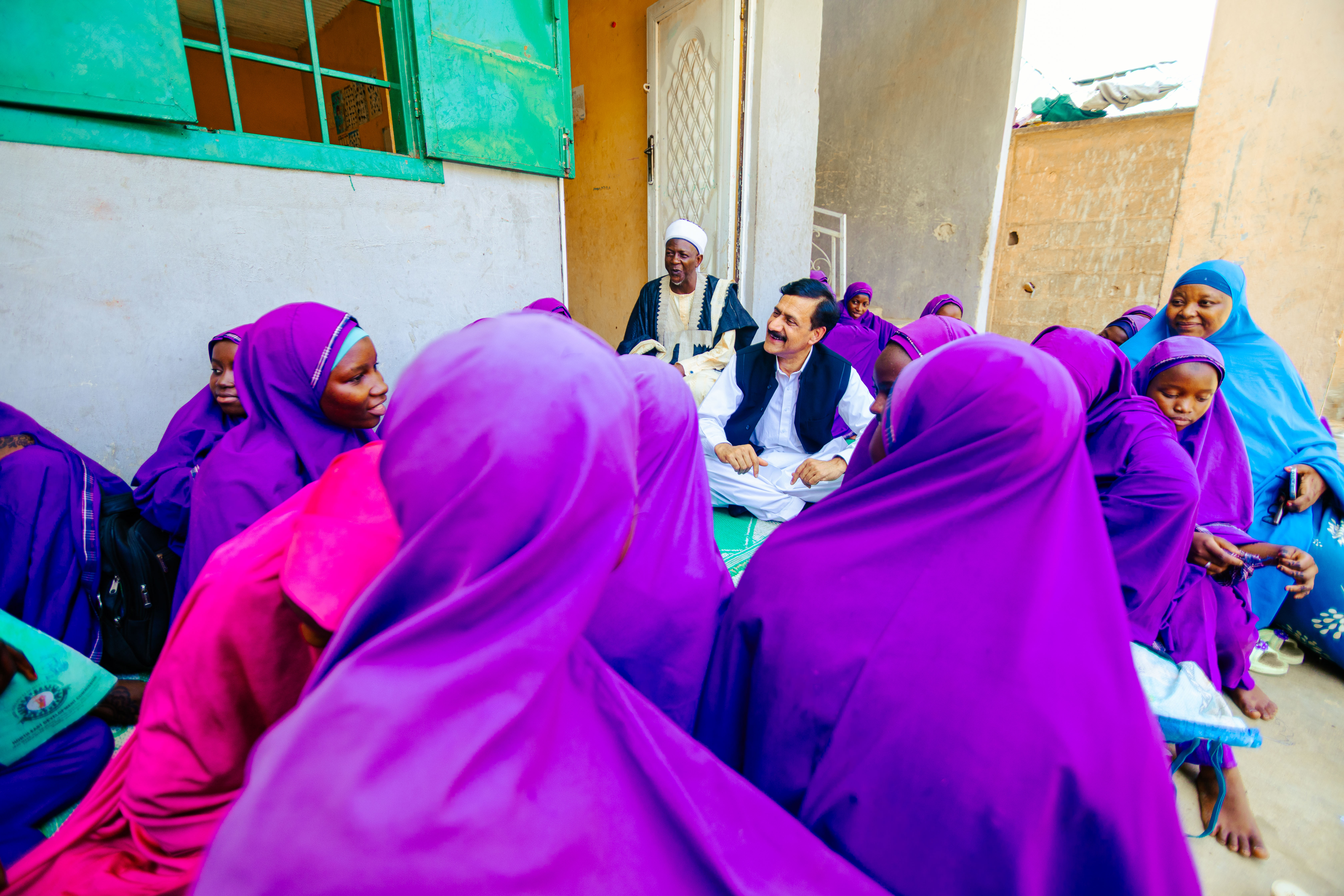
A day of reflection
On his final day in Nigeria, Ziauddin joined Jummah, Friday prayers, before sitting down with Ummi Bukar, a Malala Fund Education Champion and founder of PAGED Initiative. Ummi works with adolescent girls in Kaduna state, training them to combine storytelling and advocacy to shift public attitudes and push for change in their communities.
Their conversation offered a reminder that while the support of men and boys is crucial, girls and young women remain at the forefront of this movement. Through PAGED’s work, girls are telling their own stories, challenging harmful norms and becoming lifelong champions for education and gender equality.
“Despite the challenges girls face in Nigeria, I’m hopeful because of the shared purpose of partners who are not just driving change — but standing with girls every step of the way.
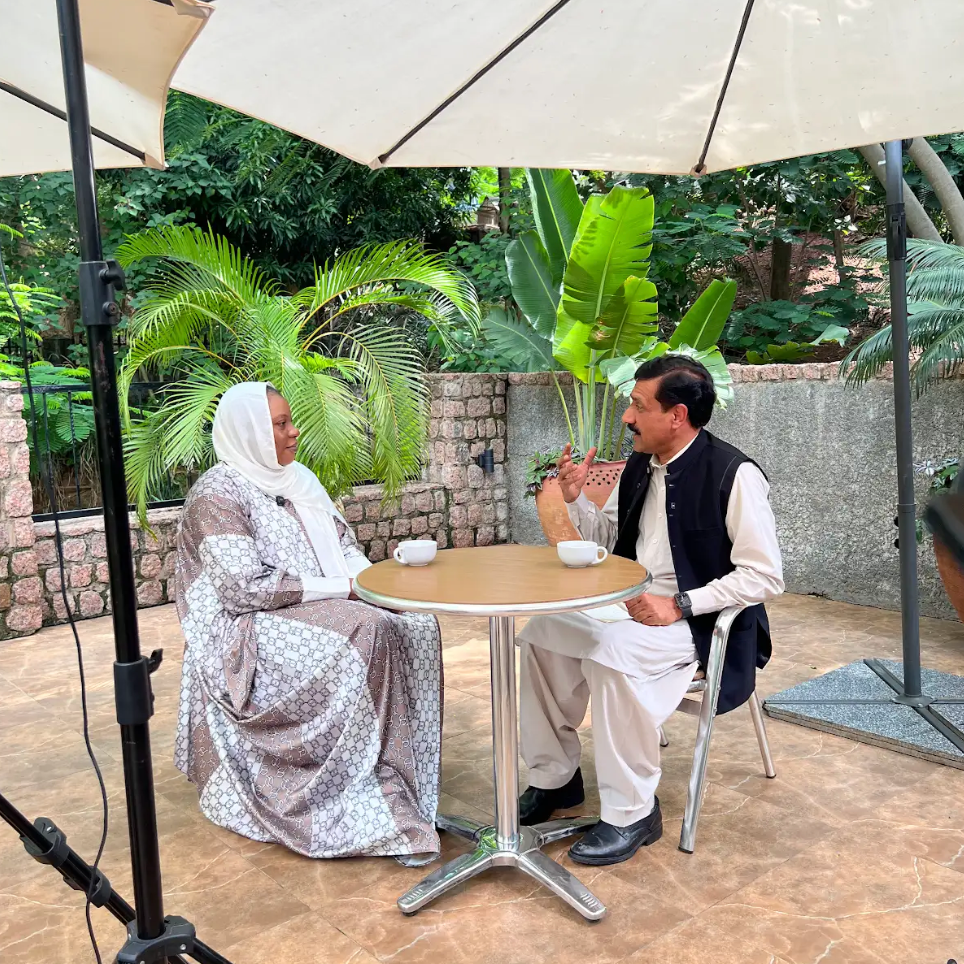
From palace meetings to grassroots conversations, Ziauddin’s trip affirmed Malala Fund’s commitment to Nigeria — and our belief that everyone has a role to play in making 12 years of education a reality for every girl.
